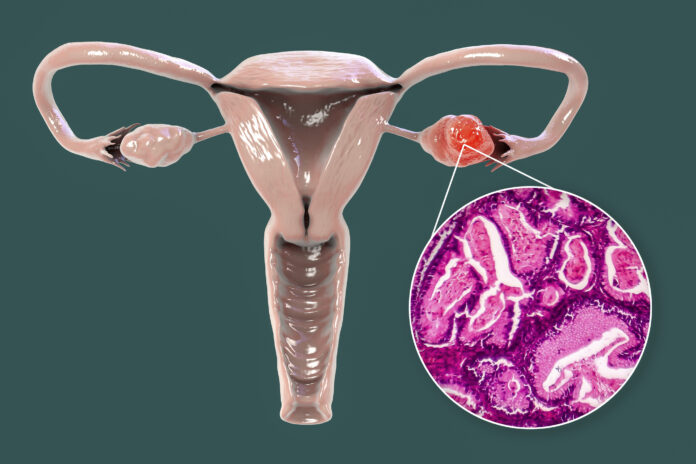
A new study from the Karolinska Institute in Sweden has shown that artificial intelligence (AI) models can significantly improve the accuracy of ovarian cancer diagnoses. The data, published in Nature Medicine, shows that the AI models developed by the researchers outperformed human examiners and achieved an accuracy rate of 86.3% compared with 82.6% for experts and 77.7% for non-expert ultrasound examiners.
The research highlights the promising role AI could play in addressing the global shortage of skilled ultrasound examiners and the challenges of detecting ovarian cancer early.
The models were trained using more than 17,000 ultrasound images from 3,652 patients sourced from 20 hospitals in eight countries. The performance of these AI models shows promise to help improve ovarian cancer diagnosis, especially considering the global shortage of skilled ultrasound examiners.
“Ovarian tumors are common but often detected by chance,” said lead author Elisabeth Epstein, PhD, a professor in the department of clinical science and education at Södersjukhuset at Karolinska. “There is a serious shortage of ultrasound experts in many parts of the world, which has raised concerns of unnecessary interventions and delayed cancer diagnoses. We therefore wanted to find out if AI can complement human experts.”
The better diagnostic performance of the AI models has the potential to alleviate the burden on expert examiners. In a simulated triage setting, the models reduced the number of referrals by 63% and also decreased the misdiagnosis rate by 18%. The researchers also demonstrated that the performance of the models was consistent across different ultrasound systems and patient populations. In addition, the models maintained their improved detection ability even when analyzing uncropped images that had not been included in the models’ training data set.
“This suggests that neural network models can offer valuable support in the diagnosis of ovarian cancer, especially in difficult-to-diagnose cases and in settings where there’s a shortage of ultrasound experts,” said Epstein.
These results show that AI models could have a broad impact on ovarian cancer diagnosis by streamlining workflows in busy clinical environments and could assist in the diagnosis of challenging cases. In situations where human experts might disagree, the models’ performance could help avoid misdiagnoses, leading to quicker and more accurate treatment decisions.
Although the AI models outperformed both expert and non-expert examiners on all diagnostic metrics—including sensitivity, specificity, and Youden’s J statistic—there were limitations in the study. For this study, the researchers analyzed the AI-models’ ability to diagnose ovarian cancer based only on the ultrasound images. Real-world performance could be enhanced further by incorporating additional clinical data.
Continuing their work, the team are now conducting a prospective clinical study to evaluate the safety and utility of these tools in a real-world clinical setting. Plans also included a randomized multicenter study to collect data on how these will affect patient management and the concomitant impact on healthcare costs.
The researchers have applied for a patent through Intelligyn, a company founded in 2022 by Elizabeth Epstein and her son Elliot Epstein, a PhD candidate at Stanford University and machine learning specialist. The company’s goal is to develop AI-based tools to improve the diagnosis of gynecological conditions.





